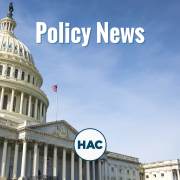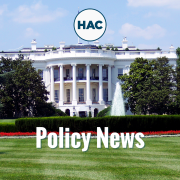In response to reports of extensive cuts in federal programs and staff that serve rural and small town interests at the Department of Housing and Urban Development (HUD) and U.S. Department of Agriculture (USDA), Housing Assistance Council CEO David Lipsetz made the following statement.
After this fall’s election, I observed that urban and rural voters had come closer together, as their shared frustration with the economy put a new Administration in the White House. It seemed this would lead to a rebalancing of public and private investment in housing—one where small towns finally get their fair shot at prosperity. One-quarter of all rural families—5.6 million rural households—are paying more than they can afford for housing. Rural communities are experiencing unprecedented levels of homelessness, with rents outpacing household income, and a housing market that puts the American Dream of homeownership out of reach for many young working families. I expressed hope that the outcome of the election would finally bring national attention to the severe housing crisis facing rural communities.
However, this glimmer of hope is now fading. The public frustration that I thought would drive positive changes to an imperfect system is instead fueling an indiscriminate effort to dismantle the very programs and professionals we need. Recent cuts at USDA and HUD are setting small towns back.
Millions of rural Americans can rent decent apartments and buy good homes in places that banks and builders do not serve because we the people believe everyone deserves a chance. Hundreds of thousands of rural families—many elderly and disabled—live in HUD’s publicly supported housing or rely on HUD and USDA rental programs to find a place they can call home. These public programs sustain rural communities as they cycle through tough times.
When the market doesn’t generate enough good housing in small towns, mortgages from USDA and rent vouchers from HUD fill the gap. Yet, these are not simple programs to run. For these programs to ensure that good housing is built and maintained, we need experienced professionals in the administration. Plans to terminate half of HUD’s workforce and dismiss employees at USDA threaten to severely disrupt these vital investments in rural housing. A bank would never tell its shareholders it plans to fire half its underwriters and still expects to make good quality loans.
We cannot afford this kind of disruption to programs that rural communities depend on. Congress has appropriated funding for these programs, rural families need them, and they cannot operate effectively without adequate, experienced staff to administer them.
HAC has been in small towns for 54 years and plans to be here for 54 more. We stand ready to work with the President and everyone else who wants to build up rural communities. We look forward to partnering with new leaders at HUD and USDA to make sure they have the resources to address rural America’s pressing housing challenges. But one thing is clear: the affordable housing crisis in rural America requires more capacity and attention, not less.




